By Janis D. Gioia, MAEd.
Do essential oils calm anxious children?
Could the scent of citrus stop your child’s panic attack or help them relax at bedtime?
Possibly.
Essential oils are trendy. You’re probably hearing a lot about them.
They are endorsed by musicians, movie stars and NFL players.
They’re tucked in gift bags for Hollywood A-listers at red carpet events.
And rumored to treat everything from anxiety to cancer.
Parents and professionals who work with children who struggle with anxiety and mental health challenges need practices that work.
For those of us in the trenches, using essential oils is not about being part of the latest fad.
We need real solutions for real problems.
A way calm a child’s anxiety at tuck-in time, or stop an after school transition tantrum.
Are essential oils a viable option?
Thankfully, the answer is a resounding yes. Research and anecdotal evidence points to the efficacy of essential oils.
The Ohio State University’s Wexner Medical Center is currently studying whether essential oils help children with autism relax before bed and sleep better through the night.
While the results from the OSU research study have not been released, I’m convinced that the benefits of using essential oils with children is fact not fiction.
As a special education teacher who has used essential oils with my children and in my classroom, long before they were celebrity chic, I can attest to their efficacy.
I have seen children with anxiety, autism and other mental health challenges calmed by the scents of lavender, silver fir, peppermint or citrus.
I know they work, but I’m not sure why.
To learn more about essential oils and how they to use them with children, I went to the experts, Jeanine Nielsen RA®EOT® at True Aromatherapy Products and Spa in Fort Langley, British Columbia and Izabella Martinez, a certified aromatherapist at Edens Garden.
This post describes what essential oils are and what they do.
Kind of like the science behind the scents.
If you’re looking for practical ways to use essential oils to calm anxiety, panic and worry and ways to create calming rituals for your child, check back later for my upcoming posts:
How to Use Essential Oils with Anxious Children
Using Essential Oils to Create Soothing Rituals to Comfort Anxious Children
But for now, let’s dive into Essential Oils 101
What are essential oils?
Essential oils are the concentrated oils obtained from plants either through cold pressing or water or steam distillation. The oils have the smells of the plants from which they were extracted.
Some common examples include peppermint, lavender and citrus oils.
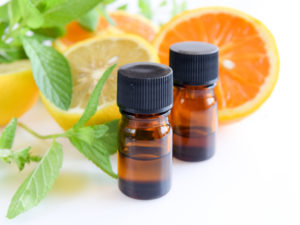
Why does scent affect the brain and trigger different emotions?
“Essential oils have a deeply balancing effect on our mind, body and spirit,” says Jeanine Nielsen, RA®EOT® at True Aromatherapy Products and Spa in Fort Langley, British Columbia.
She continues, “Aromatherapy involves the use of smell to impact emotional changes within us.”
“The oils can enter the body by absorption through the skin or through inhalation; when inhaled the oils are absorbed through the olfactory system, and messages are sent to the limbic system of the brain, a part of the brain which is connected to our emotional response,” Jeanine explains.
Jeanine states that, “The olfactory system is also connected to the hypothalamus, pituitary, nervous and endocrine systems, thus playing a larger role in hormonal health and impacting our emotional state producing a sense of well-being.”
“Our sense of small is one of the five senses that is often overlooked,” says Izabella Martinez, a certified aromatherapist at Edens Garden.
“Through olfaction, aroma can modulate emotions as well as thoughts and memories,” Izabella continues.
What this means, in layman’s terms, is that what you smell affects how you feel.
Here are some examples:
Smelling chocolate chip cookies might remind you of baking cookies at your grandma’s house when you were a kid.
A whiff of suntan lotion, even on the coldest winter day instantly takes you back to your trip to the beach last summer.
Happy memories give you an instant calm.
That’s how essential oils affect the brain.
Jeanine explains, “While we breathe in the essential oils, the various molecules penetrate the limbic system in the brain which responds by releasing neurochemicals, which trigger the area of the brain called the olfactory, known as our sense of smell, causing physical and psychological changes throughout the body, working towards promotion balance.”
“These,” says Jeanine, “are the basic principles supporting how aromatherapy works. Research suggests that odors may influence thought and behavioral patterns. Research of the limbic system reveals that certain essential oils can stimulate or sedate the nervous system through their effects on brain waves.”
If that’s how essential oils work, what are their benefits?
According to Izabella, “Essential oils or aromatherapy work in the same way that medicines do, in that they fill in gaps, stimulate processes and make corrections to our health. We know this through scientific studies and experimentation.”
Jeanine says that essential oils, going as far back as 4500 B.C, were the first medicines ever used.
“These plant’s essence molecules are more 75 times more concentrated as an essential oils than in the dried plant.”
As Jeanine explains, “The DNA structure in the plant work is in harmony with the DNA in the human body and in return speeds up the healing process.
Essential oils can help kill bacteria and viruses, fight infection, relieve allergies and alleviate anxiety, stress, depression, fatigue and poor memory.
How are essential oils used?
There are 3 primary ways to use essential oils:
Inhalation
Breathing in essential oils from a diffuser, an inhaler or a spray.
Topically
Applying essential oils to the skin, either directly, but most often diluted with a carrier oil (olive oil, sweet almond oil, grape seed oil, cocoa butter, etc.)
When using essential oils topically with children, always dilute them with a carrier oil. You can apply oils with your fingers or a roller ball applicator.
Ingestion
This method is not common in the United States, and is not recommended.
Izabella says, “Do not give essential oils to children to ingest. Ingesting essential oils causes a larger than recommended amount of essential oils to be delivered into the bloodstream. It can also cause damage to the mucous membrane and internal organs.”
Children are much more sensitive to essential oils than adults, and must always be used with adult supervision and guidance.
(A parent can make a child a calming blend of carrier and essential oils to be kept in a rollerball applicator. Depending on the child’s age and maturity, the child can keep the roller bottle to self-soothe. More on this in my next post.)
Jeanine adds, “Essential oils are potent flammable substances. They should be kept out of reach of small children. If they ever get into the eyes, flush with a carrier oil immediately. If they are ever swallowed, drink milk and then call a poison control center.
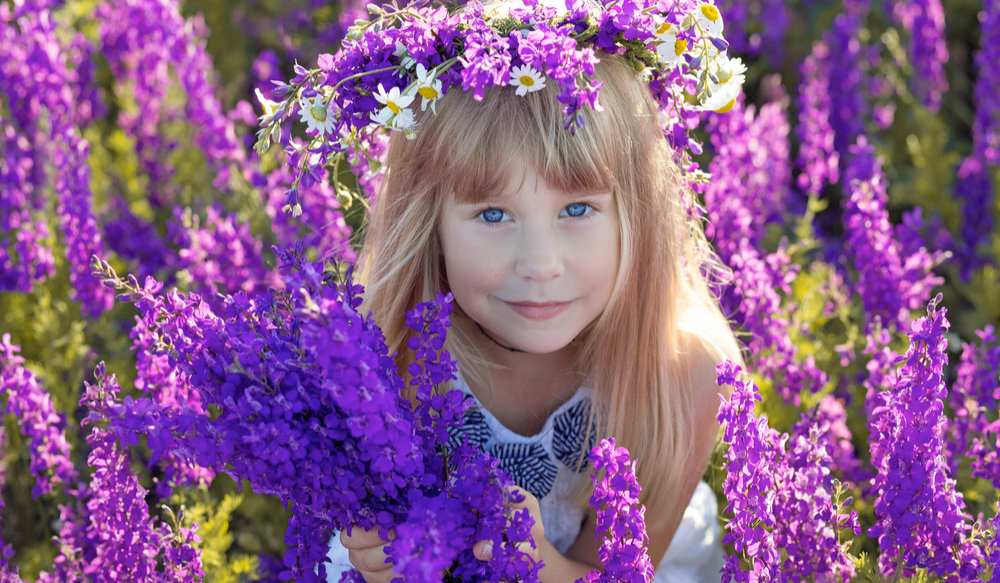
With that said, are essential oils safe to use with children?
Yes, essential oils are safe to use with children with parental supervision.
Again, they should only be used by inhalation or topically, diluted with a carrier oil.
“Safety is key when it comes to using essential oils with your child,” cautions Izabella.
Izabella does not recommended using essential oils on children under 2 years old without guidance from an aromatherapist and their pediatrician.
“Essential oils should not be used to replace medications without the consent of your child’s pediatrician and an aromatherapist,” says Izabella.
Essential Oil Usage Guidelines:
“Many doctors are unfamiliar with aromatherapy,” Izabella continues, “And for this reason, you need to work in conjunction with an aromatherapist who can provide you with safe guidelines that meet your child’s specific needs.”
Jeanine, however, believes that essential oils can be used safely with infants, as long as they are diluted into carrier oils. Jeanine’s guidelines for using essential oils (EO) with infants are as follows:
Infants: 1 drop of EO into 1 oz. of carrier oil
Babies 3-6 months: 1 drop EO into 1 oz. of carrier oil
Children 2 years old: 2 drops of EO into 1 oz. carrier oil
Children 3-5 years: 2-3 drops of EO
Children 6 years and up: 4 drops EO into 1 oz. carrier oil
If your child has no reactions to essential oils (see below) then Jeanine says it is safe to rub some on the child’s chest, back, neck, ears and feet.
Allergic reactions to essential oils is very rare, but to be safe, it’s best to introduce one oil at a time to make sure your child tolerates it.
Signs or an allergic reaction (which would occur within the first few hours of the oil being applied or inhaled) include trouble breathing, itching or a skin reaction (rash) at the site of application.
To test a child’s reaction to using an essential oil topically, experts recommend diluting one drop of one essential oil with four drops of carrier oil. Apply a small amount of the diluted mixture to a tiny area of your child’s skin. If there is no reaction in the next several hours, your child is probably not sensitive to that particular oil.
Another good way to “test” an essential oil before using it on your child is to wear it yourself, getting the child used to the scent.
Remember, do not diffuse essential oils for long periods of time, or in close proximity to children, without the consent of their physician.
Izabella follows guidelines recommended by Robert Tisserand (aromatherapy expert and researcher) and says that you should diffuse essential oils in 30-60 minute intervals. It’s safer, and you don’t get “essential oil memory” which means getting used to the oil to the point where it becomes ineffective due to overuse.
“When it comes to children,” Izabella states, “use the diffuser for 30 minutes at most.”
The best resource on essential oils is Robert Tisserand’s classic Essential Oil Safety: A Guide for Health Professionals, the only comprehensive text about essential oil safety.
To find an aromatherapist near you check out The National Association of Holistic Aromatherapy.
What is aromatherapy?
Aromatherapy is the science of using scent to provide relief from anxiety, depression, and other emotional conditions, resulting in a sense of peace and well-being.
How is scent healing?
Scent “heals” by triggering “feel-good” chemicals in the brain, which, as Jeanine states, “cause physical and psychological changes in the body.”
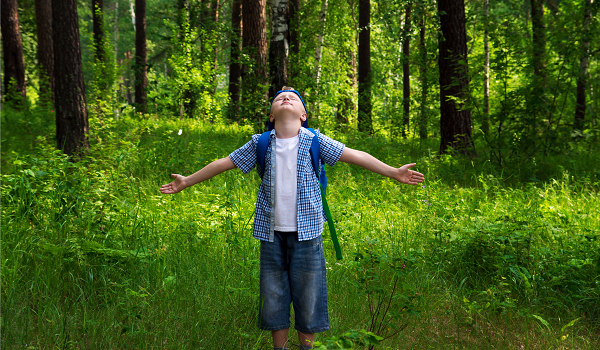
What are the benefits to using aromatherapy with children?
There are many benefits to using aromatherapy with children.
The first being, essential oils are natural. Many parents would rather try a plant-based method to reduce anxiety before considering a traditional medicine approach.
There are so many essential oils to use, and each scent or scent combination can have a positive effect on numerous physical and mental conditions.
Many parents and professionals have found that essential oils can:
-reduce anxiety
-ease depression or feelings of grief
-help children focus and alleviate symptoms of ADD
-calm children at bedtime and given them more restful sleep
–ease transition troubles
-reduce tantrums
-calm aggressive behaviors
Now What?
That was a lot of information.
Now you know what essential oils are, how they work and what they do.
Come back soon or sign up (below) for my mailing list to be notified about the next posts in this series:
- How to Use Essential Oils with Anxious Children
- Using Essential Oils to Create Soothing Rituals to Comfort Anxious Children
Wishing you peace, Jan
Comforting Anxious Children cannot provide medical/safety advice on the use of essential oils for your child. If you have questions regarding the safety of essential oils for use with your child consult with your child’s pediatrician and a licensed aromatherapist. Comforting Anxious Children provides educational articles for parents and professionals and does not give medical advice. Do not use this site or advice within the site to self-diagnose yourself or your child. Consult with your child’s healthcare professionals if you have any concerns about your child’s physical or mental health.

By signing up, you’ll also receive your free guide with 20 ways to comfort your child…mind, body and spirit.

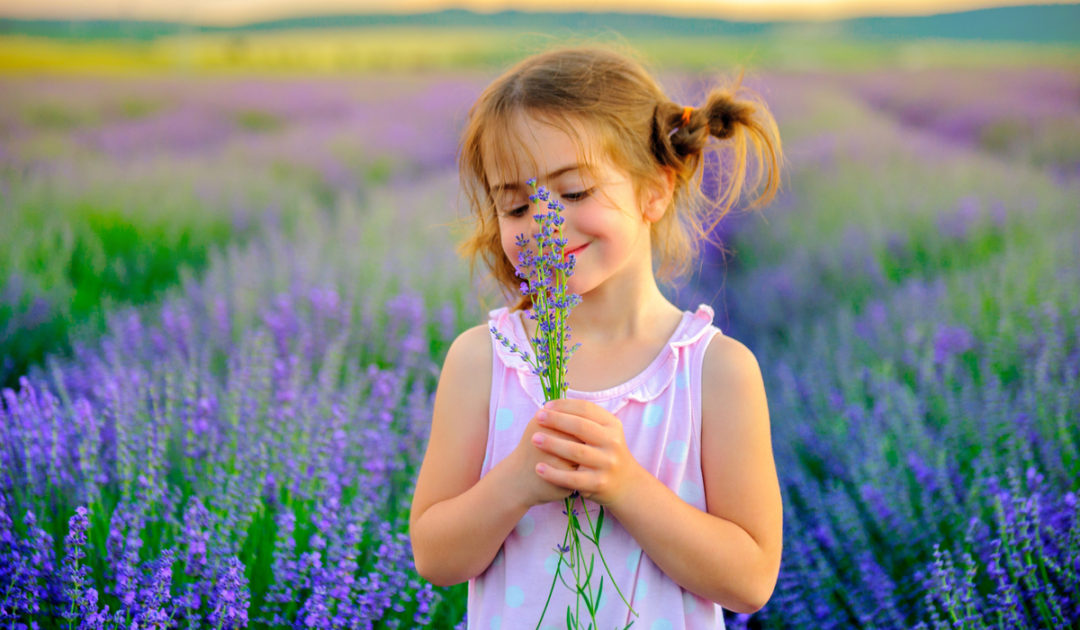
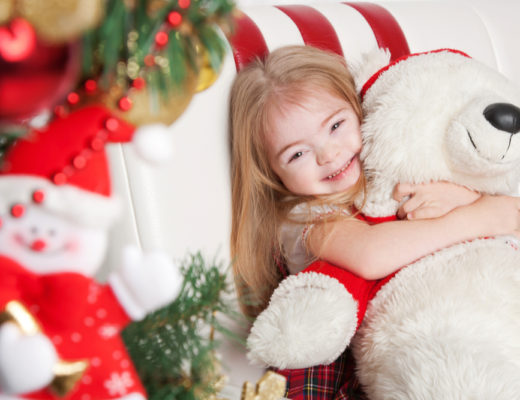
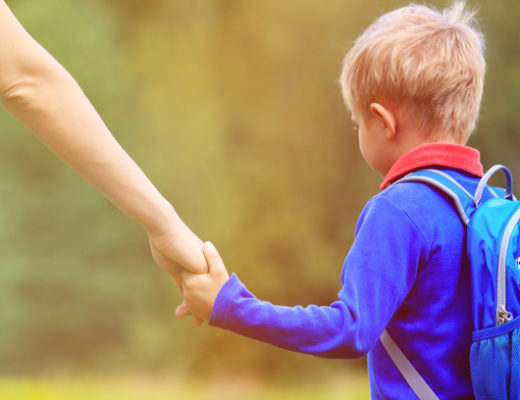
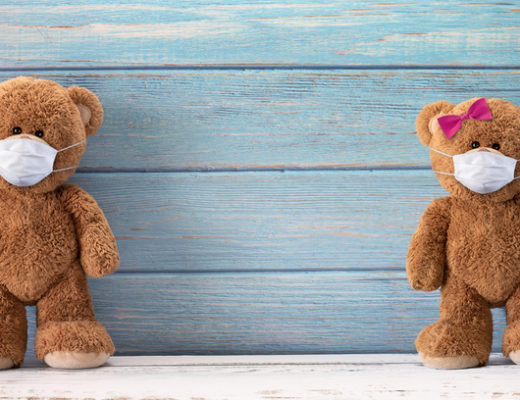

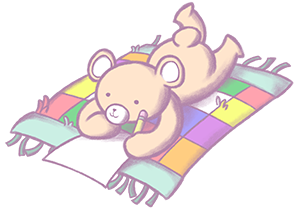
 in Ohio
in Ohio
9 Comments
This was so interesting! I have used essential oils in the past, but I haven’t in a while. It might be time to dust off my diffuser! Thank you for sharing your research with us!
Definitely dust off that diffuser! Essential oils are an amazing way to comfort and calm anxious children and anxious adults too!
I am so glad that I found this helpful post. My son has bad posture. He get therapeutic massages with essential oils every two-three weeks and he feels better. And of course, we use different essential oils like jasmine and lavender!
I’m glad this post was helpful to you, Bella, and I’m glad essential oils help your son.
I used this today for the first time on my very anxious and high strung 4 year old and it worked like a DREAM! I am unable to find how often you can use as a massage oil to help with calming. Can you help me?
Hi Tracy,
I’m so glad that essential oils helped your anxious child! I do not know the answer to this question, but I will email the experts I contacted when I wrote the article and I will get back with you. Thank you for visiting Comforting Anxious Children.
Hes so hyperactive all the time his sleeping can be bad at times and i can’t take him out anywhere as his behaviour is so bad
Hi Lynn,
I’m so sorry for challenges your son has with his autism. I’m sorry for the challenge that is for you as a mom. I hope you are finding helpful resources on Comforting Anxious Children. You might find additional help for him in these articles on my website: Mental Health Resources for Kids, Teens and Adults, The Best Products/Resources to Reduce Anxiety in Children. If I can help guide you to any additional resources, please let me know. I taught children with autism spectrum disorders for many years. I wish you and your son all the best. Peace,Jan
Hi Lynn, I hope Comforting Anxious Children helps you help your son. We have many articles and resources on ways to help children with autism. Please let me know how we can help you. Peace, Jan and Elise